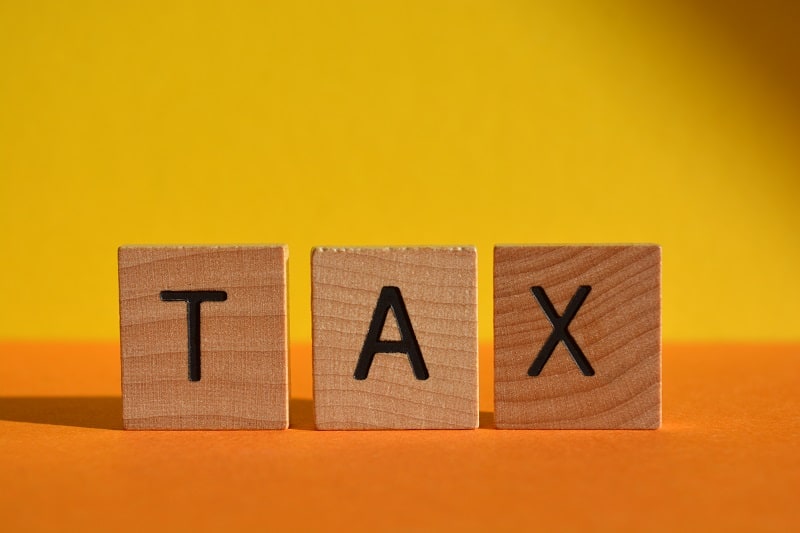Waiting the entire year to complete your return is not necessarily the best strategy to follow when it comes to tax. Never fear, though – in this blog, we’ll discuss everything you need to know about taxable income, your obligations and how to prepare in advance.
Ultimately, tax planning should be done continuously throughout the year if your goal is to reduce your income liability. To help you with these matters, a tax agent can guide you through the most appropriate strategies and support you in executing them. Best of all, they’ll do this in advance, so you’re not caught out last minute.
For example, ensuring your tax bill is part of your financial planning throughout the year is crucial, no matter what kind of income earner you are. Finally, it’s also a massive part of any investment strategy overall.
If you’re interested in tax advantages, how to reduce income tax and how much you are obligated to pay, we’ve compiled this list to help you do just that. Save time, effort and money in the process with these easy-to-action tips.
Claim Tax Deductions for Your Work-Related Expenses
If you spend money on something work-related, it could be claimable on your next return.
In essence, anything you purchase in your own capacity and that’s used for professional circumstances can be put forward as a claim – a laptop, for example. You can then claim that money back as a tax deduction.
Ensure you save all receipts, though, even if you don’t know if something is claimable or not. Our top tip is to save the receipt digitally by taking a clear photo using your smartphone. There are also plenty of helpful apps out there that can help you store these away for safekeeping – like Dext – but an accountant can also help you keep track of these details.
Remember that small expenses add up over time, and even if they seem tiny in the moment (like purchasing a pen), they can save you a significant amount of money when it comes to tax deductions.
So what can you claim?
The Australian Taxation Office (ATO) notes these common expenses as valid work-related tax deductions:
- clothing, laundry and dry-cleaning expenses
- upskilling and self-education
- tools, equipment, electronics, stationery
- transport and travel fees
- working from home costs.
Know If Your Employer Carries Out Salary Sacrificing
Salary sacrificing – also referred to as salary packaging – is an employment arrangement when an employer surrenders part of an employee’s salary to pay for specific expenses. Only the balance is therefore transferred into their account.
This way, the employer pays the agreed-upon expenses from the employee’s pre-tax salary before the remaining balanced is hit by income tax.
Since the employee is only required to pay tax on the balance, they end up receiving a smaller salary, resulting in a reduced taxable income.
The expenses that can be used for salary sacrificing include:
- car payments;
- children’s school fees, and
- loan repayments.
Opt to Prepay Your Expenses For a Tax Deduction
A simple method to reduce your taxable income is by prepaying your expenses. For example, you can bring your deductions forward to the current financial year and pay for your tax-deductible expenses a year in advance. This will reduce your taxable income overall.
Finally, your total prepaid expenses should not exceed $1000, and there is a 12-month rule to follow: a prepaid expense can be claimed as an immediate deduction, provided the service is under 12 months and will finish in the following income year.
Reduce Taxable Income By Making Personal Super Contributions
Here’s a bonus: you can double-up on tax savings by making personal contributions to your superannuation fund. This is a beneficial tax planning strategy for high-income earners in particular. These claims allow you to be taxed 15% of your super, rather than a bigger percentage of income tax from your salary.
Remember, these only count as allowable tax deductions if you make a personal contribution yourself; employers paying into your super directly from your pre-tax income won’t apply.
Tax savings are achievable this way if you generate your income from:
- a foreign source
- a partnership
- a personal business
- government pensions or allowances
- investments
- salary and wages, and
- trust distributions.
How Private Health Insurance Is a Tax Offset
The Australian Government incentivises middle to high-income earners to opt for private healthcare, which lightens the public health system’s load. So, people who take out these policies will receive tax rebates as a result.
Taxpayers are generally charged a Medicare Levy of 2.0%, which is compulsory. Single individuals that earn over $90,000, or families that earn $180,000 and don’t have private healthcare insurance, must pay at least 1% Medicare Levy Surcharge, as well as the compulsory 2.0% levy.
Opting for private healthcare insurance, therefore, eliminates the 1% surcharge and means you’ll receive a tax refund on it.
To qualify for a tax offset for your private health insurance, you must:
- be an Australian citizen;
- have a Medicare card, and
- have a taxable income of under than $140,000 ($280,000 as a family).
Use Charitable Donations to Reduce Taxable Income
Tax refunds are applicable if you donate to a deductible gift recipient (DGR) organisation recognised by the ATO. Cash donations to the organisation are acceptable, but be sure to keep a receipt. If you donate a gift, the same applies. Finally, all donations must exceed $2.
Other tax-deductible donations that the ATO allows include:
- heritage gifts
- property purchased up to 12 months before gifting
- property valued at more than $5,000
- shares valued at $5,000 or less, and
- trading stock.
However, it’s important to understand that you receive the total amount you spent on the donations through a tax refund. Instead, the amount is taken off your total taxable income, where you get a percentage of the donation back.

Get a Capital Gains Tax Discount
If you sell or dispose of an asset, you can decrease your capital gain by half if you have owned the asset for a minimum of 12 months.
Most real estate is subject to capital gains tax, including vacant land, rental properties, business premises, holiday homes and hobby farms. However, the home that you live in isn’t eligible for capital gains tax unless you use it for business, rent out a portion of it, or the land exceeds two hectares. Additionally, shares, units and cryptocurrency are all subject to capital gains tax.
Alongside this, personal use assets refer to those that cost you $10,000 or more and are used for personal contexts or enjoyment. Examples of these cases may be household items like furniture or electrical goods. A boat is considered a personal use asset in terms of vehicles, but a car is not.
Finally, collectables bought for over $500 can be subject to capital gains tax, such as artwork, antiques, jewellery, and coins.
Why You Should Employ a Tax Agent
Managing your own taxes by yourself is stressful enough, but claiming deductions on your income and not getting professional guidance can be a rocky road if you’re not careful.
The ATO investigates all claims that seem suspicious, even if it was a result of an honest mistake. Needless to say, it’s advisable to stay out of trouble wherever possible.
To avoid these risks, a professional tax agent lodges all of your claims and deductions for you so there’s much less room for error. They also have years of knowledge and expertise to effectively put the strategies in place, helping you reduce your taxable income. And as a bonus, their services are considered tax-deductible.
A deduction can be claimed for any expenses associated with managing your taxes, including:
- any interest the ATO imposes
- litigation costs
- preparing and lodging your return
- receiving a valuation for a deductible gift or property donation
- receiving advice, and
- travel costs associated with getting financial advice.
Key Takeaways
Effective tax planning can reduce how much income tax you have to pay monthly, and grow your return at the end of the year.
You can minimise how much tax you pay by:
- claiming work-related expenses
- salary sacrificing
- prepaying expenses yourself
- making personal contributions to your super
- taking out private health insurance
- making charitable donations to DGRs, and
- using a tax agent.
Contact us for personalised strategies from our expert tax agents. Our team will tailor a plan suited to your personal situation, allowing you to maximise your claims and maintain compliance.
Disclaimer
Please note that every effort has been made to ensure that the information provided in this guide is accurate. You should note, however, that the information is intended as a guide only, providing an overview of general information available to contractors and small businesses. This guide is not intended to be an exhaustive source of information and should not be seen to constitute legal or tax advice. You should, where necessary, seek your own advice for any legal or tax issues raised in your business affairs.






